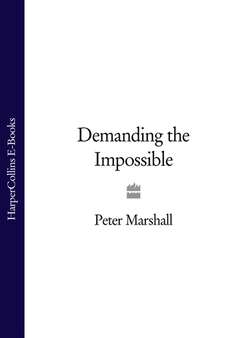Читать книгу Demanding the Impossible - Peter Marshall - Страница 35
Jean Meslier
ОглавлениеLittle is known of Jean Meslier except that he was a country priest of Étrepigny in Champagne. He did not dare publish his atheistic and revolutionary beliefs in his own lifetime but wrote them down in a Testament in the 1720s for the edification of his parishioners after his death in 1729. Although some manuscript versions circulated in Paris in the middle of the century, Voltaire and Holbach were the first to publish a truncated version which only included his anti-clerical sentiments. The full text did not appear until 1864.
Written in an angry, unpolished and convoluted style, the argument of Meslier’s Testament are set out in a series of ‘proofs’. The tide however gives the essence of his message: ‘Memoirs of the thoughts and sentiments of Jean Meslier concerning part of the errors and false conduct and government of mankind, in which can be seen clear and evident demonstrations of the vanity and falseness of all divinities and religions …’
The village curé in fact reached the shattering conclusion that all religions are not only false but their practices and institutions are positively harmful to the well-being of humanity. In the name of reason and nature, he rejected the claims of Christianity and theism. God simply does not exist and no soul lives on after death. According to Meslier, the idea of the Fall of Man bringing about all the afflictions of this life simply because of a mild act of disobedience in eating some apple is quite incomprehensible.
Meslier has been called ‘more of an anarchist than an atheist’.18 He certainly thought that man is naturally drawn to appreciate ‘peace, kindness, equity, truth and justice’ and to abhor ‘troubles and dissension, the malice of deceit, injustice, imposture and tyranny’.19 But why, he asked, had the desire for happiness common to every human heart been frustrated? It was simply because some people were ambitious to command and others to earn a reputation for sanctity. As a result, two forces had come into being, one political and the other religious. When they made a pact between themselves the fate of the common people was sealed. The source of existing ills was not therefore to be found in the Fall of Man, but rather in the ‘detestable political doctrine’ of Church and State:
for some wishing unjustly to dominate their fellows, and others wishing to acquire some empty reputation of holiness and sometimes even of divinity; both parties have cleverly made use, not only of force and violence, but also of all sorts of tricks and artifices to lead the peoples astray, in order to achieve their ends more easily … and by these means, one party has made itself honoured and respected or even adored as divinities … and the members of the other party have made themselves rich, powerful and formidable in the world, and both parties being, by these kinds of artifices, rendered rich enough, powerful enough, respected or formidable enough to make themselves feared or obeyed, they have openly and tyrannically subjected their fellows to their laws.20
To end this state of affairs, Meslier calls on the poor and oppressed to exclude both ecclesiastical and political parties from society so that they can live in peace and virtue once again. He insists that the salvation of the common people lies in their own hands. Only a violent social revolution could eradicate evil from the face of the earth: ‘Let all the great ones of the earth and all the nobles hang and strangle themselves with the priests’ guts, the great men and nobles who trample on the poor people and torment them and make them miserable.’21
